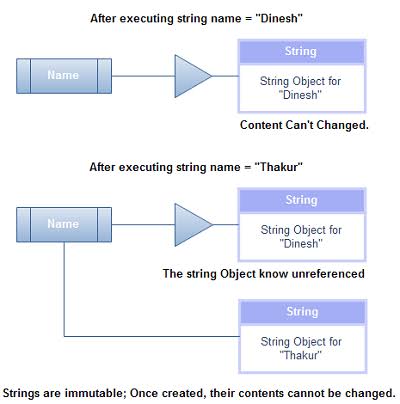Why Are Strings Immutable in Java? Secret Reasons and Advantages Explained
Why Are Strings Immutable in Java? Secret Reasons and Advantages Explained
Blog Article
Immutable Strings: A Secret Part in Ensuring Information Uniformity and Dependability
In the realm of data management, the significance of immutable strings can not be overstated. The idea of immutable strings transcends simple formality; it is a cornerstone in the facility internet of data administration.
The Idea of Immutable Strings
Unalterable strings, a fundamental idea in programs, describe strings that can not be customized as soon as they are created. In essence, as soon as a string value is assigned, any operation that appears to customize the string really produces a new string. This immutability guarantees data consistency and integrity in applications, as it protects against unexpected adjustments to the initial data.
Benefits in Information Uniformity

Data uniformity is essential in various aspects of software advancement, including database administration, multi-threaded settings, and dispersed systems (Why are strings immutable in Java?). Immutable strings contribute considerably to attaining this consistency by protecting against data corruption due to simultaneous gain access to. In scenarios where multiple procedures or strings interact with the exact same data all at once, unalterable strings work as a protect versus race problems and synchronization issues
Additionally, the immutability of strings streamlines debugging and testing processes. With immutable strings, designers can rely on that once a string is established, it will continue to be the same, making it much easier to map the source of mistakes and making sure that test situations create consistent results. This integrity in information dealing with eventually leads to more durable and stable applications.

Implementing Immutable Strings
Ensuring the immutability of strings requires a thoughtful method to their implementation in software application advancement. When a string item is developed, one vital method is to make string classes in a way that stops alterations. By making strings unalterable, developers can boost information consistency and integrity in their applications.
To implement immutable strings efficiently, designers need to favor creating brand-new string objects as opposed to modifying existing ones. This technique makes sure that as soon as a string is designated a worth, it can not be transformed. Furthermore, any procedure that shows up to customize the string ought to produce a brand-new string with the preferred modifications rather than modifying the original.
Furthermore, utilizing immutable strings can simplify concurrency administration in multi-threaded environments. Given that unalterable strings can not be changed after creation, they can be safely shared among numerous threads without the risk of information corruption.
Function in Reliability Guarantee
In software application growth, the utilization of unalterable strings plays a crucial duty in making certain the dependability of data operations. Immutable strings, when developed, can not be modified, ensuring that the data they represent stays consistent throughout the application's execution. This immutability residential or commercial property offers a level of guarantee that the information being processed will certainly not be unintentionally altered, bring about unforeseen outcomes or errors in the system.
By incorporating unalterable strings right into software program style, developers can enhance the reliability of their applications by decreasing the threats related to mutable data - Why are strings immutable in Java?. Immutable strings help in avoiding information corruption visit or unintentional adjustments, which can be specifically vital when dealing with delicate details or when data honesty is paramount
Furthermore, the use of unalterable strings simplifies simultaneous processing, as several threads can safely gain access to and share string data without the risk of one thread changing the material while another reads it. This facet adds substantially to the overall dependability of the software system, ensuring constant and foreseeable habits in information managing operations.
Applications and System Combination
The smooth combination of unalterable strings into numerous applications and systems is pivotal for guaranteeing durable data consistency and integrity across diverse technical settings - Why are strings immutable in Java?. Immutable strings play a vital duty in enhancing the honesty of information exchanges and communications within facility software ecosystems. By incorporating unalterable strings into applications, click here for more info programmers can alleviate the threats related to information meddling, unauthorized adjustments, and unintended alterations, consequently fortifying the total security stance of the system
Unalterable strings can improve interoperability between disparate systems by offering a standard format for data depiction, allowing more effective data handling and exchange methods across interconnected systems. By embracing immutable strings in applications and system assimilation procedures, companies can fortify their data framework and support the dependability and consistency of their info properties.
Conclusion
In verdict, unalterable strings play an essential duty in maintaining information consistency and dependability in numerous applications and system combinations. By ensuring that strings can not be altered as soon as developed, the stability of information is maintained, reducing the risk of variances and errors. Implementing unalterable strings can considerably boost the integrity of systems, ultimately bring about even more reputable and exact information processing.
Report this page